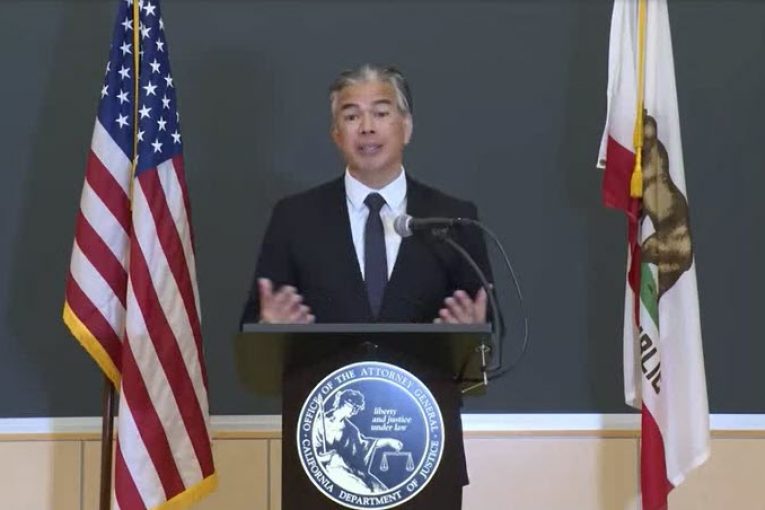

By The Vanguard
OAKLAND, CA – California Attorney General Rob Bonta this week announced his state’s opposition to a proposed class action settlement that Bonta claims “fails to adequately hold accountable the 3M Company (3M) for contaminating Americans’ drinking water supply.”
The CA DOJ said the proposed settlement would allow water providers to withdraw the hundreds of lawsuits filed against 3M over its use of per- and polyfluoroalkyl substances—commonly referred to as “PFAS” or toxic “forever chemicals”—in a wide range of consumer products and firefighting foams.
Bonta explained PFAS are “stable in the environment, resistant to degradation, persistent in soil, and known to leach into groundwater,” adding, “PFAS can cause serious health impacts — including various forms of cancers, developmental defects, infertility, diabetes, and liver damage — and have been frequently detected in water systems nationwide. As a result, the stakes could not be higher.
“While I appreciate the effort that went into it, the proposed settlement in its current form does not adequately account for the pernicious damage that 3M has done in so many of our communities. I have both a moral and legal obligation to voice my opposition, and I thank the court for considering our concerns,” Bonta said in a statement.
The proposed settlement, according to Bonta, would apply to “nearly every public water provider in the United States, even those that have not sued and even those that have yet to test for the presence of PFAS in their water.”
In return, 3M has promised to provide $10.5 to $12.5 billion to water providers, but, said Bonta’s office, “an amount that is worth far less because of certain provisions that could ultimately force water providers to reimburse 3M for many costs.”
AG Bonta filed a lawsuit in late 2022 against 20 PFAS manufacturers, including 3M, for “endangering public health, causing irreparable harm to the state’s natural resources, and engaging in a widespread campaign to deceive the public.”
Bonta said he is “vigorously” prosecuting that case, and wants to block the proposed 3M settlement because it threatens California’s interests.
In the brief filed with the U.S. District Court for the District of South Carolina, the California-led coalition said, “Individual water providers would be bound by the proposed settlement unless they proactively opt out, whether or not they have sued 3M or already tested for PFAS. Troublingly, they would have to make their opt-out decisions without knowing how much they would actually receive and, in many cases, before knowing the extent of contamination in their water supplies and the cost of remediating it.”
The coalition added, “The proposed settlement contains an indemnification clause, which shifts liability from 3M to water suppliers bound by settlement because they decided not to proactively opt-out…if a cancer cluster develops in a PFAS-impacted community and the victims sue 3M, 3M would likely be able to seek compensation from the community’s public water supplier for any amount it owed to the victims.”
The AG notes PFAS have been widely used in consumer products including food packaging, cookware, clothing, carpets, shoes, fabrics, polishes, waxes, paints, and cleaning products, as well as in firefighting foams designed to quickly smother liquid fuel fires.
In 2021, the California Legislature passed and Gov. Gavin Newsom signed legislation that restricts the “manufacture, distribution, and sale of food packaging that contains PFAS and requires manufacturers of cookware to disclose the presence of certain chemicals on the internet or product label.”
Bonta said California has also joined a multistate comment letter in May 2023 supporting the U.S. Environmental Protection Agency’s first-ever proposed regulation of PFAS in drinking water.
Bonta’s Office also, in November 2021, joined a multistate letter to the U.S. Senate supporting pending PFAS legislation; in June 2020, the office joined a multistate letter urging the EPA to regulate PFAS under the Safe Drinking Water Act; and in April 2020, the office joined a multistate letter to the EPA advocating rigorous PFAS standards for imported products under the Toxic Substances Control Act.
Other states opposing the proposed settlement are Arizona, Colorado, Connecticut, Hawaii, Maine, Maryland, Massachusetts, Minnesota, New Hampshire, New Jersey, New Mexico, New York, Pennsylvania, Rhode Island, Tennessee, Texas, Vermont, Wisconsin, the District of Columbia, the Commonwealth of the Northern Mariana Islands, and the Commonwealth of Puerto Rico.
The motion to intervene is here and opposition here.